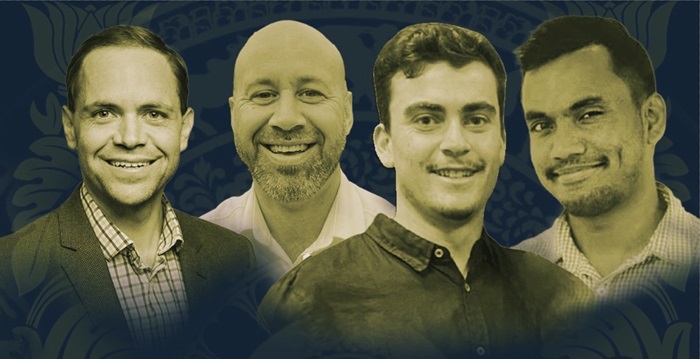Why seeking the right kind of mentorship is important in sports

Why seeking the right kind of mentorship is important in sports
“The delicate balance of mentoring someone is not creating them in your own image but giving them the opportunity to create themselves.” — Steven Spielberg
What is it about mentorship that makes many so obsessive and at the same time doubtful?
Well, to start, I have been fortunate enough to be mentored by many high-quality professionals and well-wishing mentors at multiple stages of my career.
It is a culmination of their guidance, combined with our hard work and intelligence, that has brought me to where I am today.
As an emerging professional who took a ‘non-traditional’ path in both education and work, I am grateful for all the irreplaceable experiences given to me and, in some instances, shared with my peers.
These experiences have shaped my perspective. I have a distinctive outlook on why one should seek mentorship early in their professional career.
The meaning of mentorship found in academic literature goes beyond a standard Merriam-Webster definition. According to the National Academies of Sciences, Engineering, and Medicine; Policy and Global Affairs; Board on Higher Education and Workforce, mentorship can be defined as:
“A professional, working alliance in which individuals work together over time to support the personal and professional growth, development, and success of the relational partners through the provision of career and psychosocial support.”
But why do we need mentorship? The right mentor provides access to a trusted advisor who can offer proper guidance and support.
Mentors can assist in three major areas that can accelerate your career growth: professional, personal, and network development.
They can be your friend, philosopher, and guide, helping you embark on a well-structured and professional path. However, there are also negative aspects, which will be highlighted later.
Mentors are invaluable sources of experience and knowledge. Whether you’re learning a hands-on skill or trying to understand a complicated topic, having a mentor to guide you is beneficial.
This direct feedback boosts confidence and enhances your professional development. Many mentors are walking encyclopaedias in their field, and the insights they provide can be crucial game-changers in one’s career.
A combination of social skills, interpersonal abilities, character traits, and professional outlooks is essential for success in any career. Some of these attributes are inherent, while others — such as leadership, adaptability, effective communication, teamwork, and collaboration — can be nurtured under the right mentor’s guidance.
Building a strong network is essential for a successful career. A mentor’s network can help you expand your own domain of connections and references.
This is particularly valuable in niche fields, where access is often restricted by tight professional circles. A mentor’s introduction can open doors, but sustaining these connections requires trust and strong work ethics.
Now that we have seen the positives, let’s consider the negatives.
Internships can be valuable, but they also come with drawbacks. Here are some common challenges:
Low or no pay: Many internships are unpaid or offer very little compensation, which can be frustrating if you’re putting in significant effort (even if mutually agreed on a pro bono basis).
Limited learning opportunities: Many internships involve repetitive tasks, admin work, or simple data entry, offering minimal career growth or experience.
High competition: Securing a good internship can be tough due to high demand, making it stressful to land a meaningful position.
Unclear job role: In India, interns often face vague responsibilities or a lack of guidance, leading to an unproductive experience.
Time commitment: Internships can be demanding, making it difficult to balance with studies, personal life, or part-time jobs.
No full-time job guarantee: Even with excellent performance, there’s no certainty of a full-time job offer at the end of an internship.
Potential exploitation: Some companies use interns as cheap labour without offering proper training or growth opportunities, which can demotivate aspiring professionals.
Relocation costs: Internships in other cities or countries may require significant personal investment in travel, accommodation, and daily expenses, often without financial support.
Paying for internships: Recently, there has been increasing exploitation of interns, with mentors charging large sums under the pretext of providing knowledge and experience, which needs to be seriously scrutinised by interns and organisations.
Mentor creating a false aura about themselves: In the current scenario, some interns are misled by mentors who create a false narrative about their expertise or rarity in the field of sports science. This makes interns feel obliged or overly grateful to be interning under these misleading professionals.
Identifying the right one: Choosing your mentor or the company is the most critical part. Wrong choice of mentor can be counterproductive to your professional growth.
A good mentor can be a source of support, a trusted advisor, and potentially a lifelong friend. The impact of a great mentor can be one of the most powerful and transformative influences in your career — so seek one out!










